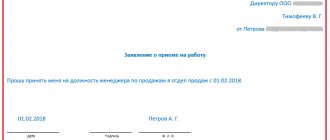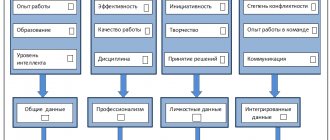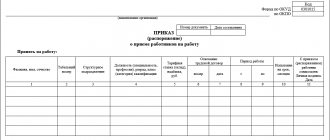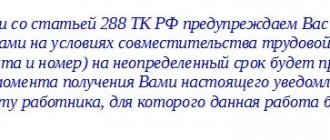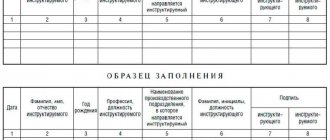- What is the accounting profession?
- What types of accountants are there and what do they do?
Chief Accountant
- Public sector accountant
- Commercial accountant
What is the accounting profession?
An accountant works directly with a company's financial assets. He is responsible for tax payments, payroll, mutual settlements with partners, budget distribution and handles many other issues related to the organization’s capital.
In small companies, all functions can be assigned to one employee. Large enterprises employ a whole staff of accountants, each of whom performs only one task. But, regardless of the amount of work, the requirements for these specialists are very serious. After all, it is to them that the owner or public manager entrusts the company’s money. A qualified accountant is always a specialist in demand. And you can master a profession regardless of gender and age.
What types of accountants are there and what do they do?
An accountant performs a wide range of duties. Its activities are controlled by the employer on the one hand and the Ministry of Finance of the Russian Federation on the other. There are a number of decrees of the Ministry of Finance regulating the work of accounting.
Therefore, a specialist must thoroughly understand the activities of the enterprise. Depending on the nature of the company the accountant works for, he or she will need a different set of skills.
Chief Accountant
The chief accountant is a specialist who solves global problems in the company. It ensures compliance with uniform accounting standards established in the organization.
In government agencies, the activities of the chief accountant are regulated by Resolution of the Ministry of Labor No. 37 and Professional Standard No. 1061n. In commercial organizations, these regulations are advisory in nature and are used to draw up job descriptions for the chief accountant.
In small organizations, the chief accountant often independently performs all accounting tasks. In large companies, he provides general management of the specialist department.
The duties of the chief accountant include:
- financial analysis of the enterprise;
- formation of tax policy;
- methodological recommendations for specialists.
In addition, the chief accountant may be assigned the following responsibilities:
- compiling reports and monitoring the timing of their submission to the relevant authorities;
- registration of facts of economic activity;
- transfer of all obligatory payments;
- calculation and transfer of tax payments.
Public sector accountant
Accounting in the public sector has many features determined by the legal requirements for the activities of institutions of this type. Accordingly, the work of an accountant has its own specifics. His responsibilities include:
- determination of the financial result of the institution’s activities;
- assessment of the degree of budget execution;
- identification of violations of financial and planning disciplines;
- creation of reliable reporting;
- control of the targeted use of the budget and prevention of unreasonable spending;
- identification of hidden reserves.
Based on this, a public sector accountant must have knowledge of the laws of the Russian Federation on archiving, social and medical insurance, and taxation. He is obliged to study regulatory legal acts, know the peculiarities of drawing up primary documentation, reflecting financial receipts and material assets in accounting accounts.
Commercial accountant
The list of responsibilities of a commercial accountant can vary significantly depending on the size of the company and the number of employees in the department. An accountant's responsibilities may include:
- maintaining primary documentation, tax and management accounting;
- calculation of wages and other payments;
- optimization of tax payments;
- inventory;
- foreign economic activity;
- preparation and submission of tax reports.
Hiring a chief accountant
What should a candidate for the position of chief accountant know? How do the requirements for a chief accountant depend on the specifics of the enterprise? What should you clarify during the interview? Does the chief accountant need management and leadership skills?
Practice shows that not all chief accountants are able to focus not only on the Tax Code (Tax Code of the Russian Federation) and Accounting Regulations (PBU), but also on the interests of the company. Moreover, combining the requirements of the law and the interests of the enterprise is difficult for both “old-school” accountants (who worked in Soviet times) and “new wave” specialists. Some of them still consider the main task to be “to make all the entries correctly” and are sincerely surprised when they are asked how the tax planning process is organized in the company. Others, when making decisions, rely solely on information received orally from a tax inspector or auditor, without even considering it necessary to refer to a regulatory document. To be confident in his chief accountant, the General Director must clearly know how to avoid serious mistakes when hiring a specialist for this key position.
Requirements for a candidate
The list of knowledge and skills required from the chief accountant depends on a number of factors. These include, in particular:
- types of economic activities of the enterprise;
- volume of business;
- the number of employees of the company as a whole;
- number of accounting employees;
- presence or absence of foreign investors;
- features of corporate culture.
In addition, it is extremely important whether the chief accountant is yours (most often this occurs in small organizations where the responsibilities of the chief accountant and financial director are combined) or whether the chief accountant is one of the financial managers reporting to the financial director.
Let's look at several types of enterprises and the requirements for the chief accountant in each of them.
Chief accountant of a large Russian enterprise (holding)
Large Russian companies often conduct on-site tax audits, so one of the main tasks of the chief accountant is interaction with the tax authorities. In addition, the chief accountant of a large enterprise faces the following tasks:
- control over the preparation of accounting and tax reporting;
- control over the activities of subordinates;
- tax planning.
In some cases, the chief accountant is assigned broader responsibilities, for example, preparing data for management reporting or leading the process of implementing a corporate information system.
The ideal candidate will be a “bison” in the field of Russian accounting and taxation, combining deep professional knowledge with developed managerial skills. The most essential requirements for a candidate of this level are:
- Higher economic education. This in no way means that an accountant with a technical or humanitarian education is bad, however, an economic education allows a specialist to master not only the skills of accounting and calculating tax obligations, but also extensive knowledge in related areas - enterprise economics, financial analysis, budgeting, banking .
- Professional experience of at least three to five years, usually in the position of chief accountant, his deputy or head of the tax department. A qualified specialist may also have experience working with an audit or outsourcing structure.
- Comparability of previous (previous) and potential places of work. A candidate who managed an accounting department of three people in a small business with a total staff of 50 people may experience significant difficulties when leading an accounting department of 100 people in a plant with many thousands of employees. In this case, an advantage for the candidate is experience in the industry represented by the potential employer.
- Availability of a qualification certificate of a professional accountant. This document is perceived in Russia as confirmation of a high level of knowledge and skills in the field of Russian accounting and taxation. This confidence is due to two factors.
Firstly, these are high requirements for those applying for a certificate (currently, a higher economic education and work experience of at least three years in the positions of chief accountant, head of financial and economic services and their deputies, or in management positions requiring knowledge of accounting, are required, as well as in positions of consultants and teachers in accounting).Secondly, to receive a certificate, the applicant must pass a very difficult exam, consisting of two parts: written (and oral) and testing. The applicant’s knowledge is assessed not only in accounting and taxation, but also in economic analysis and legal regulation of business activities.
As an alternative to a qualification certificate of a professional accountant, a qualification certificate of an auditor or tax consultant can be considered.
- At least one to two years of management experience. Let us emphasize once again: the chief accountant is not only a financier, but also a manager, one of the main managers in the company. Accounting in a large enterprise is one of the largest departments in terms of number of departments; it is impossible to organize its work without appropriate experience and leadership charisma. It is desirable that in the previous position the candidate led a team of comparable size for a long period of time.
- Proficient in modern information technologies. A modern accountant should be familiar with a computer. The technology of manual accounting still does not contradict Russian legislation, but it does not at all meet the needs of a dynamically developing company. The chief accountant must be able to work with basic MS Office applications (Word, Excel, Internet), use e-mail, and legal databases (Garant, ConsultantPlus). And, of course, the main factor is the knowledge of specialized accounting programs (1C, Parus, Info-Accountant, Turbo Accountant, Infin, etc.). An absolute plus for the candidate is familiarity with modern Western ERP systems (SAP R/3, Oracle, MS Axapta, MS Navision, etc.).
As a rule, when choosing an accountant, General Directors must take into account that their enterprise already has one or another information system operating successfully. This often results in a strict requirement for the candidate to master a specific system. Sometimes this requirement is presented by the employer as key. The ability to work with a specific system implemented at the enterprise should indeed be considered as a candidate’s advantage, however, from our point of view, a rigid approach in this matter is wrong. Firstly, different information systems have a lot in common and a person who has previously mastered three financial systems will also master the fourth. Secondly, by insisting on knowledge of specific systems, you significantly narrow the pool of candidates. Thirdly, a dynamically developing business constantly requires new information solutions from you. Information technologies at Russian enterprises are being actively improved. And it is possible that in a year you will be faced with the question of replacing the existing system.
Chief accountant of a Western company operating in Russia (enterprise with foreign investment)
In a large Western company operating in Russia as part of a Russian legal entity, the requirements for the qualifications of the chief accountant are often even more serious. A Russian legal entity with foreign capital must provide the same package of financial statements and pay the same taxes as a purely Russian company. This means that high competence of the chief accountant in the field of Russian standards is mandatory. But in addition to all the requirements specified for a Russian company, the chief accountant of a Western company (a company with foreign capital) must have the following skills:
Be able to prepare corporate reporting in accordance with IFRS (or US GAAP[1]). In many Western structures, corporate (management) reporting is the “language of business”, a means of communication between managers and investors. In this regard, the qualifications of the chief accountant in the field of international standards become a priority factor when choosing a specialist. The high qualifications of an accountant in this area are confirmed by certification (or at least ongoing training) under one of the well-known international programs (see Leading certification programs for accountants...). Note that recently the demand for specialists with such professional certification has increased significantly from large domestic companies, which is associated with their entry into the international market and the attraction of foreign investors.
Professionally speak a foreign language (usually English). It is easier to check the level of foreign language proficiency than other aspects of a candidate’s qualifications. A ten-minute conversation is enough to understand whether the fluent English mentioned in the resume corresponds to reality. However, it is worth noting that Western companies sometimes pay too much attention to the level of language proficiency, and the company hires an excellent translator for the position of accountant.
Leading certification programs for accountants according to Western standards:
- CPA (Certified Public Accountant) – highly qualified certified accountant;
- various ACCA (Association of Chartered Certified Accountants) certification programs;
- CMA (Certified Management Accountant) – certified specialist in management accounting.
Other similar programs are CIMA, CFM, CIA.
The practitioner says:
Elena Belyaeva,
Financial Director of the publishing house "Gruner + Yar", Moscow
Basic requirements for candidates for the position of chief accountant in our company:
- Excellent knowledge of accounting and tax accounting.
- Good knowledge of legal issues.
- Skills in tax planning and optimization of document flow.
- Experience in implementing and debugging ERP systems (not only for accounting, but also for management purposes).
- Excellent leadership qualities - willingness to make decisions and take responsibility.
- Extensive work experience. Frequent changes of companies are a significant disadvantage in a candidate’s biography. The minimum period of work for a chief accountant in one place is three years. By the way, if a person was an accountant, I will not hire him for the position of chief accountant. The reason is that a simple accountant is most often not a leader, which is mandatory for a real chief accountant. An exception may be a specialist who has worked for at least two years as a deputy chief accountant. He can also be considered an interesting candidate.
- A good reason to leave your previous job. Reasons that I find acceptable:
- desire for professional growth,
- desire to work in a larger, dynamic company,
- intention to move from a “gray” business to a “white” one.
- Having ambition. Anyone who doesn't want to become a CFO in the future won't make much of an impression on me.
- Basic knowledge of English.
The arguments “I didn’t fit in with the team”, “I didn’t get along well with the management”, “everyone blames me” are not accepted.
The applicant's compliance with the listed parameters can be determined during an interview. By asking a few questions on professional topics and assessing how quickly and competently the interlocutor answers them, you can already understand what level of specialist is sitting in front of you. As for detailed testing on tax and accounting issues, this can be done by a recruiting agency or our audit company.
Chief accountant of a small company
Small Russian or Western companies, where the duties of chief accountant and financial director are often performed by one person, usually require a “jack of all trades.” An additional requirement in this case is qualifications in the field of management accounting, planning and budgeting. It is no coincidence that the salary level offered to the “chief finance officer” in such a company is often comparable to the salary of the chief accountant of a large holding structure.
Roman Golubitsky,
General Director, Moscow
Our company is young, and the number of employees in it is still small. Therefore, in most cases I hire new employees myself. In my experience, information from a candidate's track record is not sufficient to judge him or her suitable. So, the chief accountant today and ten years ago are two different positions. Ten years of experience is an absolute plus, but if a person does not know how to work with automated systems and, most importantly, does not want to learn this, I would not recommend that you trust him with your accounting.
My guiding principle when hiring is the same as Herb Kelleher's: “We don't hire specialists. We accept positions in life.” A young professional focused on professional growth and striving to reach the top of the profession can be much more useful to the company than a former financial director who came to “sit out” until he finds a better place to use his talents.
Additional factors for assessing a candidate
In addition to the professional requirements discussed above, specific to different types of enterprises, the personal qualities of the candidate are of great importance.
- Determination. The most important aspect of an accountant's job is personal responsibility. By signing the company’s financial documents and statements with a “second signature,” the chief accountant assumes serious responsibility - not only to the company, but also to government agencies. Therefore, the chief accountant of any structure must be a decisive person who has his own opinion.
- Communication skills. The task of the chief accountant is not only to develop his own opinion, but also to be able to correctly convey it to management. This leads to another important factor – the communication skills of the specialist holding this position. There are often cases when the financial director and the head of an enterprise speak “different languages.” The accountant’s task is not to rush between them, but to optimally use working time - his own and that of his subordinates, to organize the structure of the accounting department so that it is able to provide all the necessary information to the management and investors of the company, as well as to the tax authorities. The common task of the head of the enterprise and the financial director (no matter what the differences between them) is to provide all the conditions for the productive work of the accounting department. The communication skills of the chief accountant in this case are the key to success.
- The candidate’s ability to fit the corporate style and culture. It is difficult to give unambiguous recommendations about a candidate’s compliance with the company’s corporate style, however, this factor is one of the most important. For example, if a company has a strict business style of dress, it is unlikely that a candidate who comes to an interview in a T-shirt will suit it. If the accounting department consists mainly of middle-aged specialists, it will not be easy for them to work under the guidance of yesterday’s institute graduate. If company employees constantly pepper their speech with English words, it is unlikely that an employee who does not know English will fit into such a team. Various psychological tests (IQ tests), as well as accounting and taxation tests, will help you finally form an opinion about the candidate. It is advisable that your employees (financial director, accountants, HR department) draw up the tests, based on their experience and difficult situations that happened in your company. Of course, standard tests of knowledge of accounting and the application of civil legislation, which require clear answers in accordance with the Tax Code or PBU, are not prohibited. But it is necessary to dilute them with practical tasks. This way you will get an idea of the candidate's ability to make decisions in non-standard situations.
Interview with candidates
It is advisable that candidates for the position of chief accountant be interviewed:
- head of personnel services (often this position is occupied by an experienced psychologist),
- financial director,
- a representative of a corporate audit company (he is also able to assess the level of professional training of the candidate).
Those selected after the above meetings must be met personally by the General Director.
The practitioner says:
Andrey Danilenko,
President of the group, Moscow region
Hiring a chief accountant, one of the key figures in the company, is a very responsible task that deserves the obligatory attention of the General Director. We often hire chief accountants for businesses that are being acquired or starting from scratch. Each candidate undergoes a three-stage interview. First, the head of the HR department talks, then my financial director. But the final decision is always mine.
Since the company has foreign capital, once a quarter we prepare corporate reporting according to GAAP standards. However, this is done by the financial director; the requirements for the chief accountant change (compared to the standard ones) by only one small point: “proficiency in English at the level of terminology to fill out the relevant tables and work with computer programs.”
Natalya Dammer,
General Director of OJSC "Novosibirsk Fat Plant"
In our company, the first interview with candidates is always conducted by the HR service, a kind of filter that determines personal and professional suitability. The CFO then meets with the remaining candidates. As a rule, during the interview he asks prepared professional questions. Applicants also take a test: a problematic situation in the enterprise’s activities is described and their opinion is asked. Then the “finalist” will have a final interview with the General Director of the enterprise where he will work.
During interviews you should:
- Examine the candidate's resume: Is it professionally written? Does it contain all the information you need? Does the candidate change jobs too often? If so, why? Do the candidate's salary expectations meet your intentions?
- Request recommendations. As a rule, a qualified specialist is able to provide references from previous places of work. However, often the candidate is currently working and does not want information about his search for a new position to reach his employer. In this case, we do not recommend asking for a recommendation from your last place of work.
Roman Golubitsky,
General Director, Moscow
During interviews, I do not use standard tests, which, as is commonly believed, allow testing the applicant’s knowledge. My main emphasis is on the ability to conduct accounting in the programs, the applicant's ability to learn and how a person can cope with complex non-standard situations that arise in the work of a chief accountant. Our services include accounting automation, which allows me to speak the same language with the candidate. When hiring, I give a task related, for example, to accounting or payroll; the candidate must offer several solutions. To test your skills in working with accounting programs, I ask you to fill out several standard forms and perform a couple of operations.
Diligence, accuracy, communication skills are perhaps no less important factors influencing my final decision. However, it is possible to judge them, as well as, in principle, the professional level of a new employee, only some time after he has been hired. Only during the probationary period, when, just in case, every action of the new chief accountant is duplicated, does it become clear whether he really has as good a command of professional skills and has as much experience as he claimed, whether he will join the team and whether he will be able to perform his job duties.
Sergey Dolginov, Zhuranl
Requirements for qualifications of a specialist in the field of accounting
It has long been believed that only a person with a higher specialized education can work as an accountant. In fact, the presence of VO is not always required. The qualifications required for an accountant are established by Federal Law No. 402 of December 6, 2011. According to the regulatory document, a higher education is required for the chief accountant in government agencies, investment funds and insurance organizations. In addition, such a specialist must have experience in the field and not be subject to criminal liability.
Commercial organizations are guided by the professional standard approved by the Ministry of Labor in Order No. 103n. It is advisory in nature and contains requirements for accountants of different qualification levels, of which 4 are identified.
Reference! Until 2022, there were only 2 qualification levels for accountants.
The education and experience requirements for an accountant are as follows:
- Ordinary employee. It is enough to have a specialized secondary vocational education or take retraining courses in the profile. No experience required.
- Head of Accounting Department. If you have a higher specialized education, you must have at least 5 years of work experience. Also, the position can be occupied by specialists with secondary specialized education or higher non-core education, subject to completion of retraining courses. Required experience: 7 years.
- Chief Accountant. A higher specialized education or non-core education plus retraining courses are required. At least 5 years of experience in senior positions in finance.
- Head of accounting service or commercial director. If you have a higher specialized education, at least 3 years of experience in a managerial position in finance is required. If there is no higher education in the field, then you will additionally need to take professional retraining courses and work for at least 5 years in the field of accounting.
Law 402-FZ: requirements for the chief accountant
In paragraph 4 of Art. 7 of Law 402-FZ provides criteria for chief accountants of certain business entities.
Thus, the chief accountant of OJSC (except for credit organizations), insurance companies, non-state pension funds, joint-stock investment funds, management companies of mutual funds, companies whose securities are admitted to trading in organized trading (excluding credit organizations), budget organizations preparing consolidated budget statements or consolidated statements government agencies must meet the following requirements:
- A higher education diploma is required.
- During the five years preceding admission to the position of chief accountant, the candidate for the position must have at least three years of experience in accounting (with reporting) or auditing within the last five years (calendar).
- If you do not have a university degree in accounting or auditing, you must have five or more years of accounting experience within the last seven calendar years.
- The candidate for the position must not have an unexpunged conviction for economic crimes.
All these requirements apply not only to the employee who will work on the company’s staff, but also to the individual with whom the entity can sign an agreement for the provision of accounting services. If such a document is concluded with a company, then it must have at least one employee on its staff who meets the requirements given above.
For credit organizations, the rights and obligations of the chief accountant are not established by Federal Law 402; they are regulated by separate legal acts of the Central Bank of the Russian Federation.
When selecting candidates for the position of chief accountant, other entities should use as a guide the qualification requirements set out in the professional standard “Accountant”, approved. by order of the Ministry of Labor of the Russian Federation dated February 21, 2019 No. 103n.
Responsibilities of the chief accountant: Federal Law 402
The responsibilities of the chief accountant include:
- Full accounting of the subject.
- Development and implementation of accounting policies (that is, a set of methods and methods for carrying out accounting).
- Accounting for all financial transactions of the company.
- Formation of all accounting registers and necessary accounting (financial) and tax reporting.
The law does not oblige the person charged with organizing accounting to perform all these functions individually. As a rule, the chief accountant has subordinates at his disposal who directly perform all these functions. But at the same time, all responsibility for mistakes made still rests with the chief accountant.
An exception will be the situation specified in paragraph 8 of Article 7 of Law 402-FZ. If the chief accountant and the head of the company have disagreements regarding accounting (whether to accept certain “primary” data for accounting, whether to include them in accounting registers, whether to reflect them in reporting), then the latter has the right to issue a written order, obliging the chief accountant to keep reports in such a way as to as he (the leader) sees fit. But in this case, all responsibility regarding this instruction is removed from the chief accountant.
Where to study to become an accountant
Training in this profession can be completed at a university, college or further education institution. It all depends on your goals.
- If you plan to be employed as an ordinary accountant, secondary specialized education will be sufficient.
- For people with existing higher or secondary specialized education, there is an opportunity to take retraining courses.
- If you already have an accounting education, but intend to move to work from the public sector to the private sector or vice versa, then appropriate advanced training programs are suitable.
After training, you can begin to perform the duties of an accountant. A significant advantage of the courses is the speed of learning. You don't need to spend several years on this. Such educational programs can be completed without interruption from work. Distance vocational training courses provide a set of necessary knowledge, but do not require personal presence.
The Academy of Business and Systems Management provides training for accounting specialists remotely. Students receive not only theoretical knowledge, but also skills accumulated by expert practitioners over the years of work.
The entire learning process takes place in the personal account of your own LMS on the Academy website. During training, students take intermediate tests on their own, so they can test themselves. The final test is taken after completing all modules of the program. The number of attempts to pass the test is not limited.
Each listener is assigned a personal curator. The specialist is in touch and can respond in a timely manner if the listener does not fully understand any issue.
The platform on which the classes are held is equally important. The Academy within the site has its own distance learning system, which can be used both from a computer and from a smartphone. The intuitive platform does not cause any difficulties even for users who are not very advanced in Internet resources.
